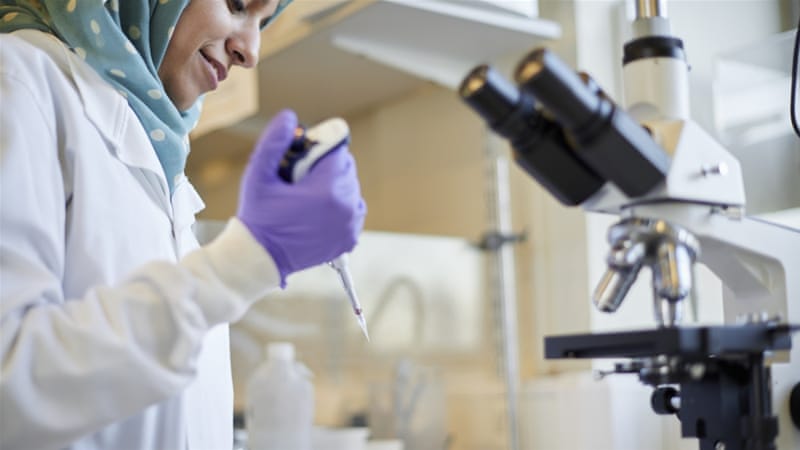Yasir Ashraf
BANNED
New Recruit
- Joined
- Oct 14, 2016
- Messages
- 80
- Reaction score
- 0
- Country
- Location
Science and technology are a ways to learn about both one mostly Pakistani educated people learning technology field or science
Follow along with the video below to see how to install our site as a web app on your home screen.
Note: This feature may not be available in some browsers.
New Recruit
New Recruit






New Recruit


Lack of interest (of our politicians), Corruption, Lack of funds enough institutes, Research centers etc i will talk about Pakistan we've a lot of talent but it is never utilized because of our current politicians they're never interested in such things because it doesn't benefit them personally at all so they don't give a sh*t about it and all that talent just gets wasted.would be nice if the *1.6billion muslims would increase their impact in sience and research this could dramaticly increase the speed of human world wide development.
What holds you guys back? Is it the religion? Tradition? Culture?

Unfortunately their is lack of a scientific culture over here and the quality of the textbooks and teachers is clearly lacking though with more folks getting access to internet hence quality educational programs available over the web gives me some optimism yet we need more inspiring scientific programs on TV to catch the eye of our youth which may trigger their initial interest and spark some ambitions, though instead of these programs we get political talk shows which frankly speaking are far to many and repetitive to say the least.Kudos bhaiLack of interest (of our politicians), Corruption, Lack of funds enough institutes, Research centers etc i will talk about Pakistan we've a lot of talent but it is never utilized because of our current politicians they're never interested in such things because it doesn't benefit them personally at all so they don't give a sh*t about it and all that talent just gets wasted. You're from Germany i see one of the most technologically advanced country in the world i just wish we had honest leaders like you actually we had in the past mainly 60's 70's but than a lot of things happened.... and now we're left with thugs sadly...
@django what do you say bro?

Lack of interest (of our politicians), Corruption, Lack of funds enough institutes, Research centers etc i will talk about Pakistan we've a lot of talent but it is never utilized because of our current politicians they're never interested in such things because it doesn't benefit them personally at all so they don't give a sh*t about it and all that talent just gets wasted.
You're from Germany i see one of the most technologically advanced country in the world i just wish we had honest leaders like you actually we had in the past mainly 60's 70's but than a lot of things happened.... and now we're left with thugs sadly...
@django what do you say bro?

You're right about the quality of education and about internet well a very small number of population have access to internet imo we need big research centers universities backed/funded/encouraged heavily by gov that should be free of corruption politics and all that stuff only than we can utilize the talent of our what you call GEMS! but when politicians only care about next election you can't expect them to think about next generations...Unfortunately their is lack of a scientific culture over here and the quality of the textbooks and teachers is clearly lacking though with more folks getting access to internet hence quality educational programs available over the web gives me some optimism yet we need more inspiring scientific programs on TV to catch the eye of our youth which may trigger their initial interest and spark some ambitions, though instead of these programs we get political talk shows which frankly speaking are far to many and repetitive to say the least.Kudos bhai
In Pakistan's case i would say yes.is it only the fault of the government?
Well yea they've got got an advantage hereMost patents are researched by companys in the private sector. Turkey shows that it can work in a muslim country but unlike many other muslim countrys they have huge infulence from their close distance to Europe and the deep connetion between turkey and EU citzien and the exchange of knowlege

With mobile technologies more and more are getting greater access, it is only a matter of time when we start seeing major benefits in quality of pak students, I guess we can say more "GEMS" will get refined.KudosYou're right about the quality of education and about internet well a very small number of population have access to internet imo we need big research centers universities backed/funded/encouraged heavily by gov that should be free of corruption politics and all that stuff only than we can utilize the talent of our what you call GEMS! but when politicians only care about next election you can't expect them to think about next generations...
